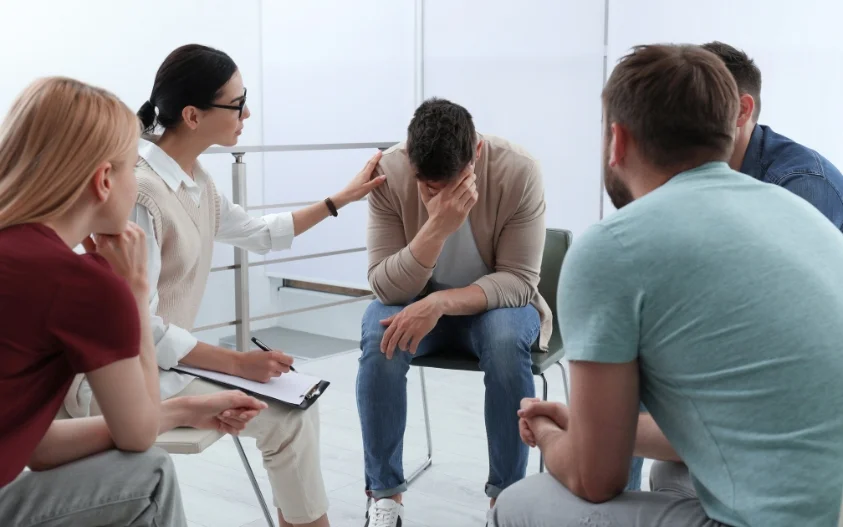24/7 Helpline:
(866) 899-111424/7 Helpline:
(866) 899-1114
Learn more about Group Therapy centers in Maplewood
Group Therapy in Other Cities

Other Insurance Options

Premera

Magellan

CareSource

Magellan Health

Anthem

Oxford

Coventry Health Care

Optima

Holman Group

Ambetter

UnitedHealth Group

BlueShield

Access to Recovery (ATR) Voucher

Horizon Healthcare Service

Private insurance

MVP Healthcare

Meritain

Excellus

BHS | Behavioral Health Systems

Humana












